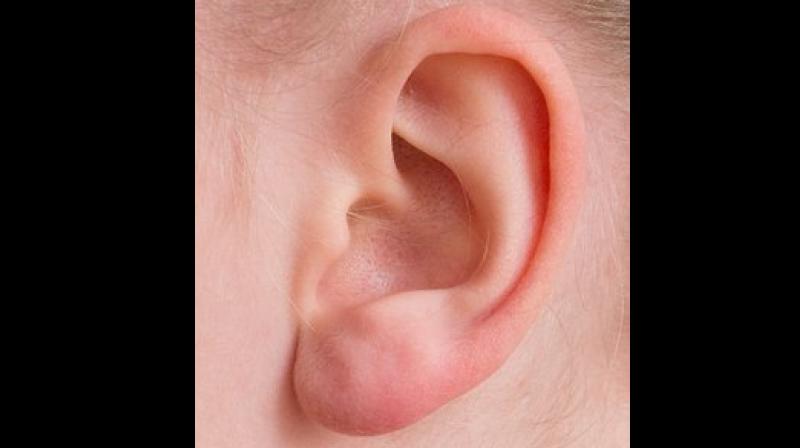Tickle therapy can slow ageing in humans
Studies reveal that ear \'tickle\' therapy can slow ageing.

Tickling ear with small electric current seems to rebalance the autonomic nervous system for the people over 55, potentially slowing down one of the effects of ageing, suggests a study. The study, published in 'Aging', has found that a short daily therapy delivered for two weeks led to physiological improvements, including a better quality of life, mood, and sleep.
The therapy, called transcutaneous vagus nerve stimulation (tVNS), delivers a small, painless electrical current to the ear, which sends signals to the body's nervous system through the vagus nerve.
"The ear is like a gateway through which we can tinker with the body's metabolic balance, without the need for medication or invasive procedures. We believe these results are just the tip of the iceberg," said Dr Beatrice Bretherton, study's lead author.
The autonomic nervous system controls many of the body's functions, which don't require conscious thought such as digestion, breathing, heart rate, and blood pressure. It contains two branches, the sympathetic and the parasympathetic, which work against each other to maintain a healthy balance of activity.
The sympathetic branch helps the body prepare for high intensity 'fight or flight' activity, whilst the parasympathetic is crucial to low intensity 'rest and digest' activity. As we age, and when we are fighting diseases, the body's balance changes such that the sympathetic branch begins to dominate. This imbalance makes us more susceptible to new diseases and leads to the breakdown of healthy bodily function as we get older.
The study recruited 29 healthy volunteers, aged 55 or above, and gave each of them the tVNS therapy for 15 minutes per day, over a two week period. Participants were taught to self-administer the therapy at home during the study.
The therapy led to an increase in parasympathetic activity and a decrease in sympathetic activity, rebalancing the autonomic function towards that associated with healthy function. In addition, some people reported improvements in measures of mental health and sleeping patterns.
Being able to correct this balance of activity could help us age more healthily, as well as having the potential to help people with a variety of disorders such as heart disease and some mental health issues. Additionally, improving the balance of the autonomic nervous system lowers an individual's risk of death, as well as the need for medication or hospital visits.
Dr Susan Deuchars, one of the senior authors on the study, said: "We believe this stimulation can make a big difference to people's lives, and we're now hoping to conduct further studies to see if tVNS can benefit multiple disorders."

